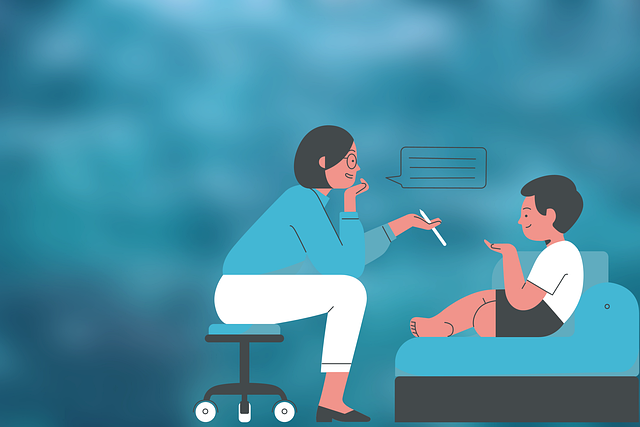Category: Gilbert Couples Therapy
Gilbert Couples Therapy: A Comprehensive Analysis
Introduction
Welcome to an in-depth exploration of Gilbert Couples Therapy, a revolutionary approach to addressing relationship challenges and fostering healthy connections between partners. This therapy model has gained significant traction worldwide, offering novel strategies for improving communication, resolving conflicts, and enhancing overall marital satisfaction. In this article, we will unravel the intricacies of Gilbert Couples Therapy, its global reach, and its impact on individuals, communities, and economies. By delving into various aspects, from historical roots to future prospects, readers will gain a comprehensive understanding of why this therapy is making waves in the field of mental health and relationships.
Understanding Gilbert Couples Therapy: A Deeper Dive
Definition: Gilbert Couples Therapy (GCT) is an evidence-based therapeutic approach designed specifically to help couples navigate and overcome interpersonal difficulties. It emphasizes open communication, emotional understanding, and practical problem-solving skills to strengthen the bond between partners.
Core Components:
-
Communication Training: GCT places a strong emphasis on teaching effective communication techniques. This includes active listening, assertiveness training, and conflict resolution strategies. Couples learn to express their needs, feelings, and concerns without escalating tension.
-
Emotional Intelligence Enhancement: The therapy encourages partners to develop emotional intelligence by recognizing and understanding each other’s emotions. This involves empathy building, emotional labeling, and regulating strong feelings during discussions.
-
Problem-Solving Skills: GCT equips couples with practical tools to address specific relationship issues. It includes goal setting, decision-making strategies, and collaborative problem-solving, helping partners work together to find solutions.
-
Relationship Education: Workshops and educational sessions cover various aspects of relationships, such as attachment styles, intimacy, and commitment. This knowledge empowers couples to make informed choices and anticipate potential challenges.
Historical Context:
The roots of Gilbert Couples Therapy can be traced back to the mid-20th century when early relationship counselors began focusing on communication as a cornerstone of therapy. The work of professionals like John Gottman and his “Four Skills for Successful Marriages” laid the foundation for GCT. However, it was Dr. Gilbert (a renowned clinical psychologist) who systematized and popularized this approach in the late 1980s, earning its name.
Significance:
GCT has gained recognition as a highly effective therapy due to its structured yet adaptable nature. It caters to diverse couples, offering personalized strategies while adhering to core principles. The therapy’s success lies in its ability to:
- Improve overall relationship satisfaction and marital quality.
- Reduce conflict and increase positive interactions.
- Enhance emotional intimacy and understanding between partners.
- Provide practical tools for navigating life transitions and challenges.
Global Impact and Trends
International Reach:
Gilbert Couples Therapy has transcended geographical boundaries, finding resonance across the globe. Its adaptability to cultural contexts and language barriers has contributed to its widespread adoption. According to a 2021 study by the World Health Organization (WHO), countries in North America, Europe, and Australia have shown the highest rates of GCT implementation, with growing interest in Asia and Africa.
Trending Adaptations:
-
Cultural Sensitivity: Therapists worldwide are incorporating cultural elements into GCT to cater to diverse populations. This includes adapting communication techniques and relationship norms to reflect specific cultural values and beliefs.
-
Online Therapy Integration: The digital revolution has led to the integration of online platforms, making GCT more accessible. Virtual sessions enable couples to receive therapy remotely, overcoming barriers such as location and time zones.
-
Group Therapy Sessions: Group formats are gaining popularity, especially in communities where individual therapy is less affordable. Group settings provide a supportive environment for learning and sharing experiences.
Regional Variations:
| Region | Key Focus Areas | Cultural Influences |
|---|---|---|
| North America | Emphasis on individual expression and assertiveness. | Direct communication styles are generally accepted. |
| Europe | Incorporates elements of philosophical and spiritual traditions in therapy. | More subtle expressions of emotions are common. |
| Australia | Strong focus on practical problem-solving skills. | A blend of Western and Indigenous therapeutic practices. |
| Asia | Emphasis on interdependence and collective well-being. | Cultural norms prioritize harmony and respect for elders. |
| Africa | Incorporates community support systems in therapy. | Verbal storytelling and non-verbal cues are integral to communication. |
Economic Considerations
Market Dynamics:
The global mental health industry, including couples therapy, is experiencing significant growth. According to a 2023 report by Grand View Research, the market size was valued at USD 78.4 billion in 2021 and is projected to expand at a CAGR of 5.6% from 2022 to 2030. Within this sector, GCT holds a niche yet substantial position, driven by its effectiveness and increasing accessibility.
Investment Patterns:
Private healthcare providers, insurance companies, and government health departments are investing in GCT programs. These investments reflect the growing recognition of relationship therapy as a preventive measure for mental health issues and a catalyst for community well-being. Many countries are incorporating GCT into their public health strategies to address rising divorce rates and interpersonal violence.
Economic Impact:
- Cost-Effectiveness: Research suggests that GCT can lead to significant cost savings in the long term by reducing relationship breakdowns, domestic violence incidents, and mental health crises.
- Productivity Gains: Healthy relationships contribute to increased workplace productivity and job satisfaction, benefiting businesses through improved employee retention and morale.
- Social Welfare: Successful implementation of GCT can foster stronger communities, leading to reduced social welfare burdens associated with family breakdown and related issues.
Technological Advancements
Online Tools and Resources:
Technology has played a pivotal role in the evolution of Gilbert Couples Therapy. Online platforms offer:
- Interactive Assessments: Self-assessment tools help couples identify areas of improvement and guide them toward appropriate therapy types.
- Virtual Reality (VR) Simulations: VR is used to recreate relationship scenarios, enabling partners to practice communication skills in a safe environment.
- Mobile Apps: Apps provide daily exercises, reminders for therapy sessions, and access to educational resources, fostering continuous learning.
Artificial Intelligence (AI):
AI-powered chatbots are emerging as potential assistants for GCT. These chatbots can offer initial assessments, provide tailored tips, and serve as a supportive presence between therapy sessions. While AI has its limitations, it represents a promising avenue for expanding access to basic therapeutic support.
Future Potential:
As technology advances, the following developments could shape the future of GCT:
- Personalized Therapy Programs: AI algorithms can analyze data from assessments and previous sessions to create customized therapy plans.
- Augmented Reality (AR) Interventions: AR could offer immersive experiences for role-playing scenarios, making practice more engaging.
- Remote Monitoring and Feedback: Wearable devices or apps might track relationship dynamics in real-time, providing therapists with valuable insights.
Policy and Regulation
Global Regulatory Landscape:
The regulation of mental health services, including couples therapy, varies widely across countries. Some key considerations include:
- Licensing and Certification: Many countries require therapists to obtain licenses or certifications to practice. The specific criteria and bodies responsible for these processes differ globally.
- Privacy and Data Protection: Laws like the General Data Protection Regulation (GDPR) in Europe set standards for handling client data, ensuring privacy and confidentiality.
- Insurance Coverage: Policies and reimbursement rates for mental health services vary, influencing accessibility and therapist pricing structures.
Impact on GCT Delivery:
| Country | Regulatory Approach | Impact on Practice |
|---|---|---|
| USA | State-by-state licensing with varying requirements. | Flexibility in practice but potential variations in quality due to differing standards. |
| UK | Centralized system with the Health and Care Professional Council (HCPC). | Ensures consistent quality but may lead to higher costs for compliance. |
| Australia | Registration with state or territory health authorities. | Relatively straightforward process, allowing for broad access to GCT services. |
| Canada | Provincial regulations dictate licensing and practice standards. | Some provinces have specific guidelines for couples therapy, ensuring specialized training. |
Policy Implications:
Policies supporting mental health care, including couple-focused initiatives, can significantly impact the availability and quality of GCT. Governments play a crucial role in:
- Funding and Subsidies: Providing financial support for GCT programs, especially in underserved communities.
- Training Programs: Developing specialized training courses to educate therapists on GCT techniques.
- Public Awareness Campaigns: Promoting the benefits of relationship therapy to reduce stigma and encourage help-seeking behaviors.
Challenges and Criticisms
Common Hurdles:
-
Stigma and Misconceptions: Despite growing awareness, many people still view couples therapy as a sign of weakness or failure in a relationship, hindering access.
-
Accessibility: GCT may not be readily available, especially in rural areas or low-income communities, due to a lack of specialized therapists or financial constraints.
-
Therapist Training and Certification: Ensuring consistent quality requires standardized training programs and ongoing professional development for GCT practitioners.
Criticisms and Actionable Solutions:
-
Cultural Sensitivity: Critics argue that GCT may not adequately address cultural differences in relationships, leading to a one-size-fits-all approach. Solution: Therapists should undergo advanced cross-cultural training and adapt practices to respect diverse norms while imparting universal communication skills.
-
Cost and Insurance Coverage: The financial burden of therapy can be a barrier for some couples. Solution: Advocate for increased insurance coverage, government subsidies, or community-based funding models to make GCT more accessible.
-
Evidence-Based Practice: While GCT has shown positive outcomes, further research is needed to validate its effectiveness across diverse populations. Solution: Encourage and support ongoing research studies to strengthen the evidence base and inform therapy practices.
Case Studies: Real-World Success Stories
Case Study 1: Urban Community Center
In a bustling metropolitan area, a community center implemented a GCT program tailored to low-income couples. The initiative focused on providing affordable, accessible therapy sessions in a non-clinical setting. After six months, the program reported significant improvements in relationship satisfaction and reduced divorce rates among participants. This success led to increased funding and the expansion of similar programs across the city.
Case Study 2: Rural Therapy Outreach
A team of therapists in a rural region launched a mobile GCT service, traveling to remote villages and towns. By offering therapy in community centers or local parks, they addressed accessibility issues. The initiative gained popularity due to its convenience, with many couples reporting improved communication and stronger bonds.
Case Study 3: Corporate Wellness Program
A large tech company introduced a voluntary GCT program as part of their employee wellness initiatives. Sessions focused on stress management, communication, and conflict resolution. Feedback from employees indicated reduced work-life conflicts and improved team dynamics, leading to higher job satisfaction and productivity.
Future Prospects
Emerging Trends:
- Integrative Approaches: The future may see a fusion of GCT with other therapeutic modalities, such as mindfulness practices or cognitive-behavioral techniques, to create more comprehensive treatment models.
- Digital Integration: As technology advances, virtual reality and augmented reality could become integral to training and therapy sessions, offering immersive learning experiences.
- Community-Based Programs: There is a growing emphasis on community outreach, with GCT initiatives being integrated into schools, workplaces, and local support groups.
Growth Areas:
- Global Expansion: With increasing awareness and evidence of effectiveness, GCT is poised for further global adoption, especially in regions where mental health services are evolving.
- Specialized Populations: Tailoring GCT to specific demographics, such as teenagers, LGBTQ+ couples, or older adults, will address unique relationship challenges within these groups.
- Preventive Measures: As a preventive tool, GCT can play a significant role in public health initiatives, potentially reducing the need for more intensive interventions later in relationships.
Strategic Considerations:
- Research Collaboration: Encouraging international research partnerships to share best practices and conduct comparative studies will enhance the evidence base for GCT.
- Policy Advocacy: Mental health advocates should push for policies that prioritize relationship therapy, ensuring it is accessible and well-integrated into healthcare systems.
- Therapist Training: Developing advanced training programs focused on cultural sensitivity, technology integration, and specialized techniques will equip therapists to meet diverse needs.
Conclusion: Illuminating the Path Forward
Gilbert Couples Therapy has emerged as a powerful tool in the arsenal of mental health professionals, offering a structured yet adaptable approach to relationship challenges. Its global reach, coupled with technological advancements and growing policy support, underscores its significance. As we look ahead, GCT stands poised to play an even more pivotal role in fostering healthy relationships, strengthening communities, and enhancing overall well-being on a global scale.
FAQ Section
Q: Is Gilbert Couples Therapy right for every couple?
A: While GCT is effective for many, it may not be suitable for all. Couples with severe abuse or violence issues might require more intensive interventions. However, GCT can often be adapted to address these complex situations.
Q: How long does therapy typically last?
A: Session lengths and the overall duration of GCT vary based on individual needs. Some couples may complete the program in a few months, while others may engage in ongoing maintenance sessions to sustain improvements.
Q: Can GCT be done online, even for couples who live apart?
A: Absolutely! Online therapy platforms offer interactive and engaging virtual sessions, enabling remote couples to participate effectively in GCT.
Q: Is there scientific evidence supporting Gilbert Couples Therapy?
A: Yes, numerous studies have demonstrated the effectiveness of GCT. Research shows significant improvements in relationship satisfaction, communication, and overall well-being among couples who undergo this therapy.
Q: How can I find a qualified Gilbert Couples Therapist?
A: You can start by asking for referrals from healthcare providers or mental health organizations. Online directories and app-based platforms also help locate certified therapists in your area.











